Since 1979, we’ve been on a mission to tackle the dirty side of cleaning. Not just your socks, but the environmental impact of cleaning products too. Our first product was a phosphate-free laundry powder – 13 years ahead of legislation.
Our environmental contributions have been recognised by Time Magazine and the United Nations Environment Programme. But we’re not putting our feet up now. Which is why we’re proud that our Ecover laundry capsules and Ecover dishwasher tablets are both CarbonNeutral® Certified by Climate Impact Partners.
Our clever new laundry capsules pack a mighty cleaning punch and offer a more thoughtful choice:
• 75% bio-based ingredients*
• Double concentrated formula
• At least 50% of fragrance ingredients upcycled rose and rescued apricots.
• No animal by-products, dyes, phosphonates & optical brighteners
• Cruelty free, Leaping Bunny certified
• Fight tough stains at 20°C
• 90% recycled content box, with minimal water-resistant coating, to ensure it can be recycled again.
*Based on ASTM D6866-22 Method B(AMS) TOC.
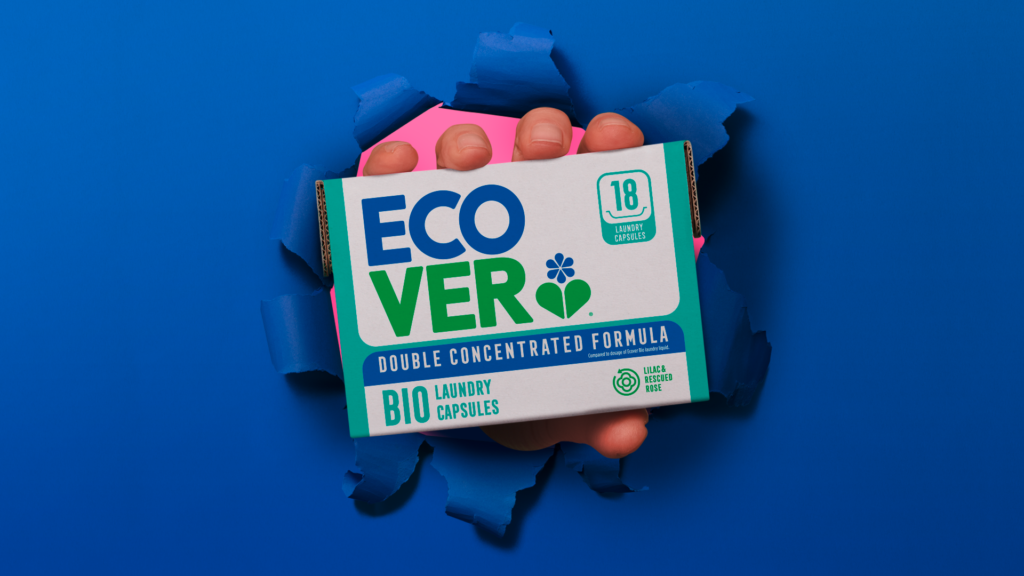
Our new wrapper free dishwasher tablets offer an alternative choice for squeaky clean dishes;
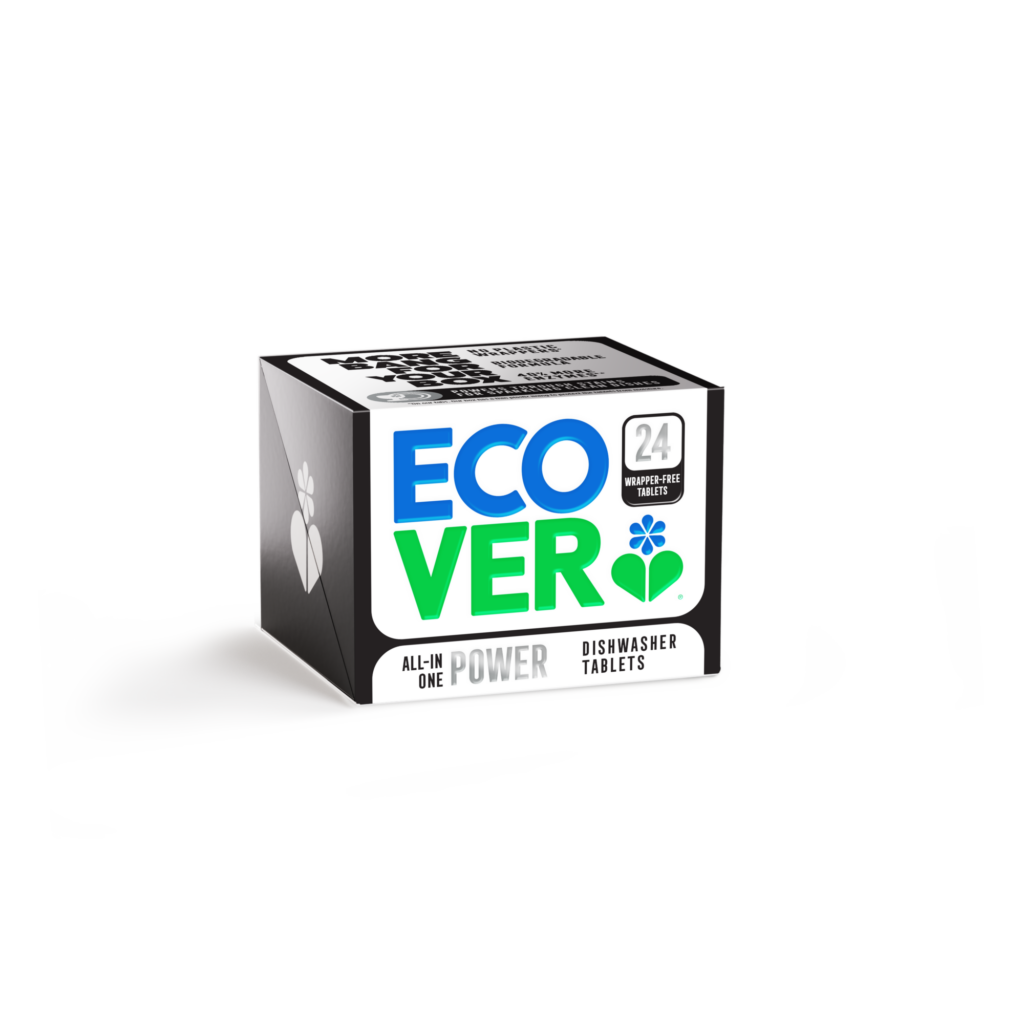
Globally recognised research reported by the National Oceanic and Atmospheric Administration (NOAA) states that atmospheric carbon concentration has increased dramatically since the modern industrial revolution. Many methods of production and consumption were developed before people understood the effect on our climate. So it’s urgent we clean up our act.
By understanding the carbon emission ‘hot spots’ for our newest products, we can tackle the best way to reduce their carbon footprint and learn for future products.
To measure a product’s footprint, manufacturers use a Life Cycle Assessment (LCA) or product carbon footprint assessment. A product LCA includes areas such as greenhouse gas emissions, water use, land use, acidification and other indicators of the product journey from sourcing ingredients to manufacturing through to the end of product life. A product carbon footprint assessment focuses primarily on the greenhouse gas footprint that the product has through it’s life cycle stages. We assessed our laundry capsules and dishwasher tablets cradle-to-grave, excluding use phase, which means we included all the product life cycle stages, from raw material extraction to disposal, except when it’s in your washing machine or dishwasher. We exclude this use phase in our assessment as emissions during this period include variable factors due to how you choose to wash your clothes and dishes, such as the energy consumption of the machine you use, through to the temperature you choose to wash at.
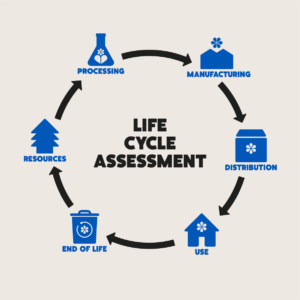
We estimate that use phase is approximately 68% of our laundry capsule’s footprint and 71% of our dishwasher tablet’s footprint.
When you’re washing your clothes at home, choices such as cold vs hot wash can have a big impact on the footprint of your washing cycle. However, our laundry capsules have been formulated to clean clothes effectively at 20°C, helping you reduce energy use and lower your footprint. Choosing an energy efficient appliance can also reduce your footprint. In the case of laundry, you can also opt to wash your clothes less and washing when it is necessary. Yes, you read that right. For tips and ideas on washing wisely for laundry and making your clothes last longer head to We can do better by washing less.
Similarly for dish products, the type of dishwasher you own, and the settings you choose, will also have an impact on the footprint of your dishwashing cycle. Our Ecover dish tabs are formulated to work on an eco-setting on your dish appliance. For ideas on how to help your dishes get squeaky clean whilst minimizing your footprint visit this great reference from the University of Michigan on Low Emission Tips for Machine Washing dishes
To help us on this crucial journey we are working with Climate Impact Partners for CarbonNeutral® certification. Climate Impact Partners is one of the longest standing private carbon neutral certifying organisations.
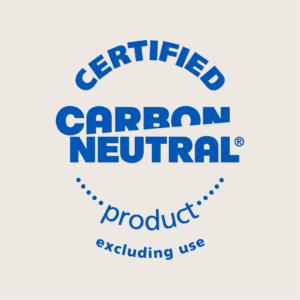
Their CarbonNeutral® mark indicates that a company has followed The CarbonNeutral® Protocol which is a globally recognised standard, managed for over 20 years, to deliver clear, credible, and transparent carbon neutral programs. The CarbonNeutral® Protocol is a publicly available methodology, updated annually which involves consultation with an advisory board. For this assessment, we followed the process laid out for product certification, excluding the use phase.
We follow the guidance set forth in the Greenhouse Gas (GHG) Protocol, and the ISO standards for Life Cycle Assessment ISO 14040 and 14044 to ensure that our assessment is up to best standards globally.
After partnering with a third party to run the Life Cycle Assessment, which provides an accounted carbon footprint for the product, our findings were as follows:
Carbon offsets are a way to mitigate greenhouse gas emissions by funding projects that have been 3rd party reviewed and confirmed to reduce carbon emissions (avoidance) or directly capture or sequester carbon emissions (reduction). Because greenhouse gas emissions result in changes to the composition of our globe’s collective atmosphere, reduction or mitigation of these emissions anywhere on our planet contributes equally toward mitigating climate impact – hence why the voluntary carbon offset market is global. The projects created to generate these emissions savings, and ultimately create tradeable carbon credits, can range from nature conservation to capture and storage of atmospheric carbon to replacement of outdated infrastructure to new and more efficient technologies. Carbon offset credits are registered through a variety of independent registries that ensure the offsets have serial number identification (to ensure the uniqueness of each credited tonne of offset), as well as a system to track the generator of the credit and its ownership. This helps to ensure that offsets are unique, additional and legitimate.
We know that there’s huge value to these types of projects which is why we are choosing to partner with Climate Impact Partners on a number of their carbon offset programmes to neutralize the carbon footprint of our laundry capsules and dishwasher tablets.
Once we calculated the carbon footprint ofthese products , we purchased carbon credits to offset their annual emissions. And we’re not talking planting trees. We chose to source carbon offsets from the Bangladesh Bondhu Foundation through its Bondhu Chula project. This project reduces the carbon emissions produced by cooking on open fires and other inefficient methods by replacing them with cleaner, more efficient burning cookstoves in Bangladesh. These carbon offset projects are selected from Climate Impact Partners pre vetted portfolio and are then rigorously reviewed and assessed by our teams.
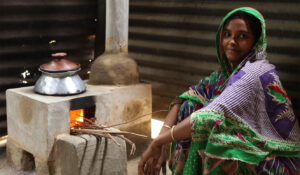
The amount of carbon emissions that are offset is equal to the amount of carbon credits we purchase. The Bondhu Chula Stoves Project is registered to the Gold Standard Impact Registry and you can find out more here. These offsets are of the highest integrity, and all projects are independently audited and certified to ensure they are real, permanent, additional, and measurable.
Progress, not perfection, is our motto. And we’ve lots more work to do. Accounting for our impact on the planet is just the first step in a carbon journey; the next part is committing to reducing our impact even further. So while we’ve offset our carbon footprint on our laundry capsules and dishwasher tablets, we’re committed to reducing their carbon footprint by at least 5% within 5 years of their launch. And that goes for any product we certify as carbon neutral. Just like when we started way back in 1979, we will continue to innovate and push ourselves with the planet firmly at the heart of what we do. Our project teams are currently investigating a number of projects to reduce our footprint, including packaging innovations and material and ingredient sourcing.
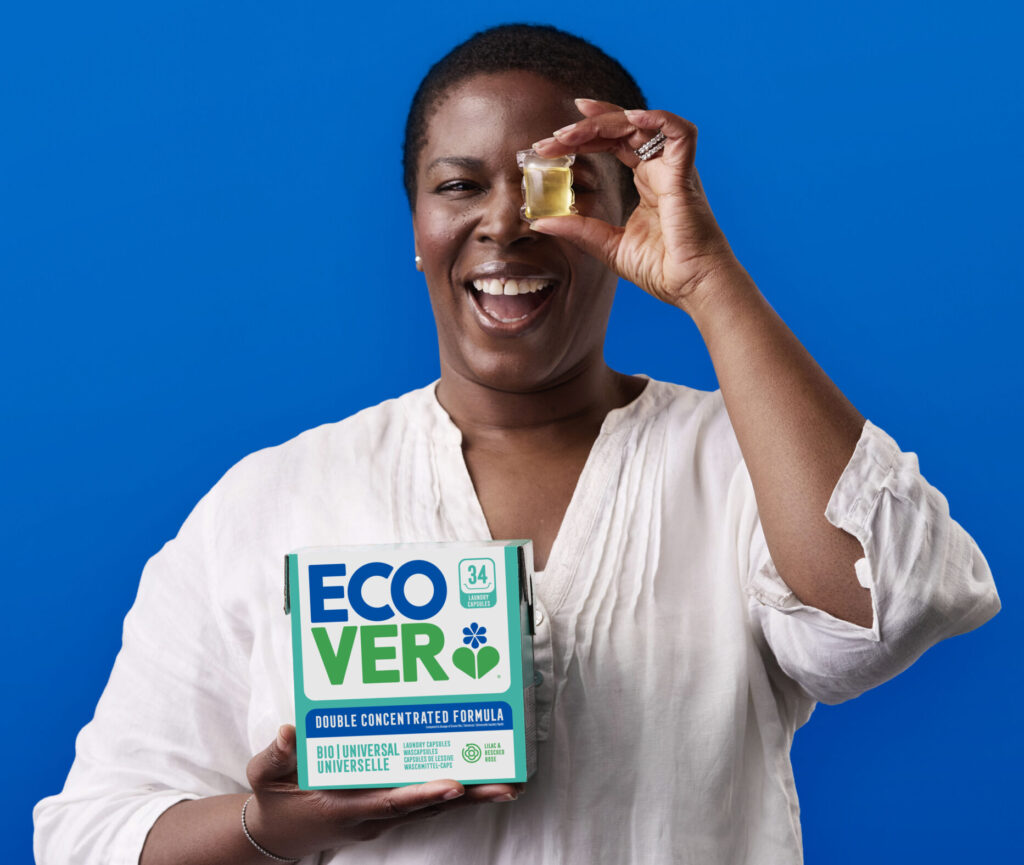
This is just the start of our journey for Ecover and we are continuing to look at ways we can help both our businesses and our consumers reduce their carbon emissions. We plan to continue our work with understanding our carbon impact across Ecover with the goal of helping consumers make more informed choices for themselves and the environment.
